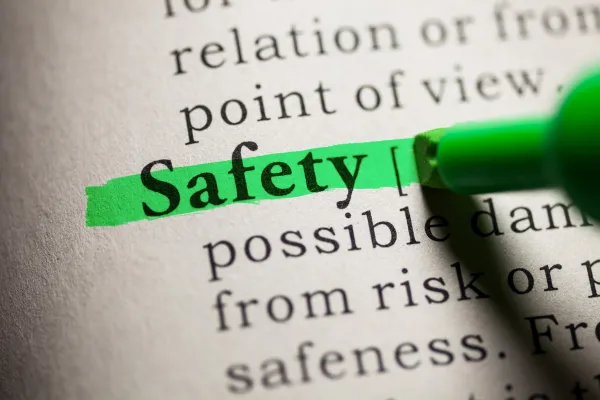
Rethinking Risk: What If “Safe” Isn’t Actually Safe?
You know I love challenging conventional thinking, so this time let's change how we look at safety & risk.
We’ve been sold a lie.
For most of our lives, we’ve been taught to chase safety.
Get a good job, fund your 401(k), buy a house, limit your risk, and be responsible.
As I’ve shared a bit over the past few weeks, we fear what we don’t fully understand and therefore overestimate it’s complexity and risk.
And we rely on the tried and true, the historical evidence over the past 10, 50, or 100 years that shape how we view the safety of our future.
But what if we’re getting safety wrong?
Rethinking safety
How do you determine what’s safe and what’s risky?
It’s largely based on your values and your experience (or proximity to that experience).
As a corporate employee your job may feel safe. If you value predictability and have never gone out on your own, the idea of entrepreneurship sounds horribly risky.
Alternatively there are many entrepreneurs who would rather go bankrupt than go back to a job because of how heavily they value control. We believe the greatest risk is in never trying.
So who’s right?
Obviously there isn’t a “right” option. It’s all about your own perspective.
Which means there’s a world where the decision you’re terrified to make is extremely safe.
It begs the question…if I were familiar and comfortable with this decision, how would I view it? What would I ask? How would I think?
It gives you a new lens to make decisions through.
An exciting example - the stock market
Let’s talk about safety & risk when it comes to money.
Let me put the disclaimer back out there that I’m still not a financial planner. This still isn’t financial advice. I haven’t gotten any new certifications since the last time I talked about money. Talk to a true professional, since obviously when it comes to money I am not
There’s no safer investment than the stock market right?
Over the past 100 years the S&P has averaged around a 10% return (before inflation). You only have to scroll X, Threads, LinkedIn, and most other social media platforms for a few minutes before you find someone talking about how you can always bet on the stock market over the long term.
Here are some other fun facts that occurred over the past 100 years:
We won WWII with our infrastructure intact (unlike most of Europe), giving the US economy a massive advantage
The USD became the world reserve currency at Bretton Woods
We’ve been seen as the safest country and safest investment in the world
What happens if that changes? And what’s the likelihood it does in the next 30-50 years?
I certainly hope the US stays on top of the world economically for centuries to come. But that’s not terribly likely.
Does that change the perception of what’s safe?
True risk comes from blindly following along
Here’s what I find risky…
Staying on a particular path without ever re-considering why you’re doing it
Blindly following “best practices” and “conventional wisdom” without asking if it works for you and/or why
Settling for a “fine” and “comfortable” life
Refusing to try new things out of fear
Grinding it out in chaos and misery for a few decades so I can enjoy my life in “retirement”
Giving up control over my most important resources - time & money
What about you?
What part of your definition of safety and risk may need to change?
The steady income that disappears if you stop showing up?
The predictable plan that’s built on outdated advice?
The “secure” business you’re afraid to grow, but won’t let go of?
The investments you don’t understand, but feel like you’re supposed to have?
Try challenging your beliefs on safety for a minute. See how it goes.
